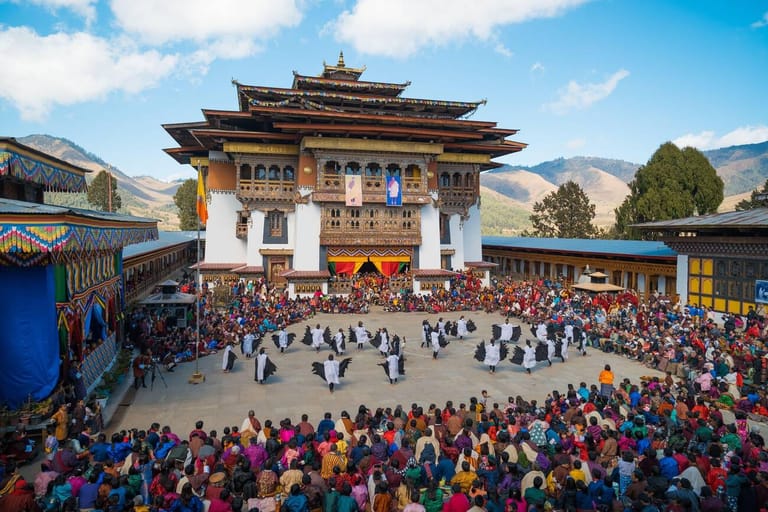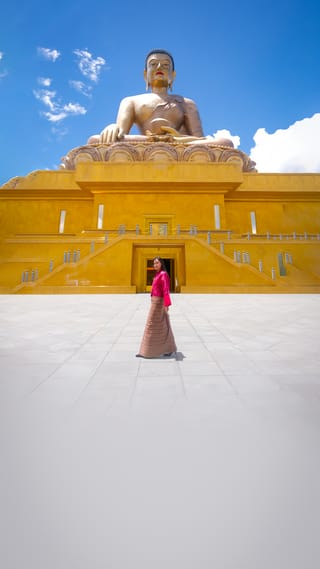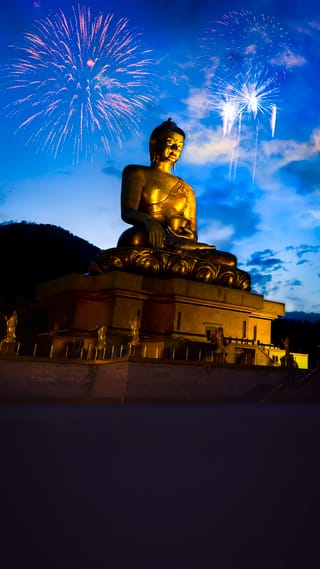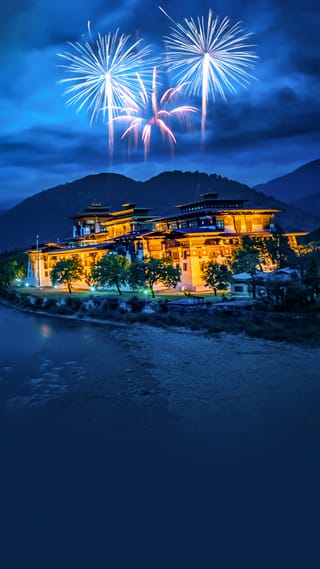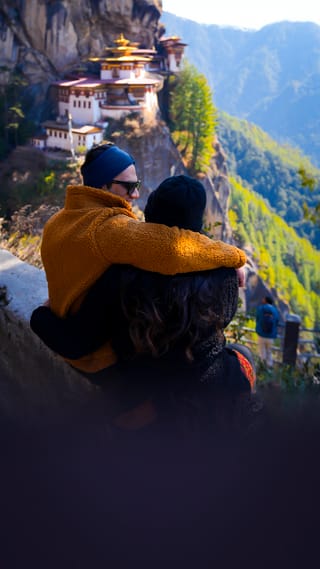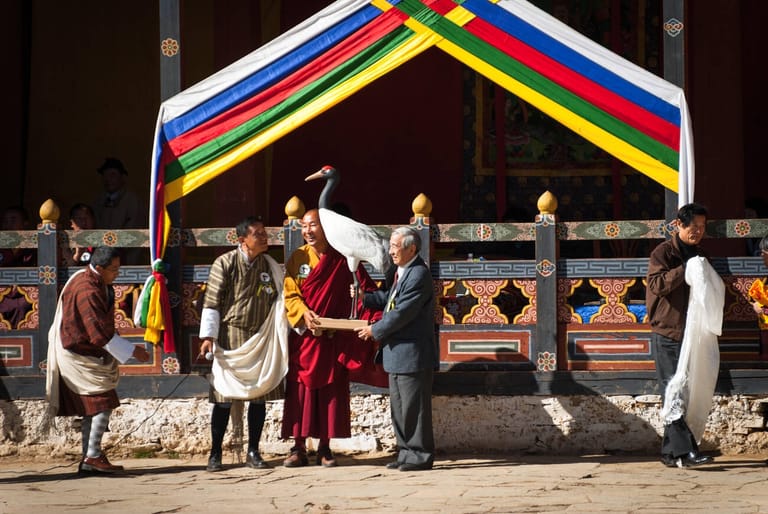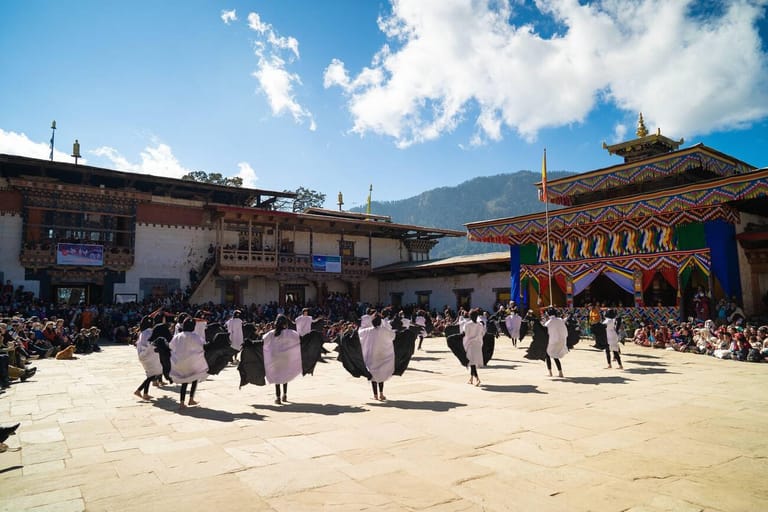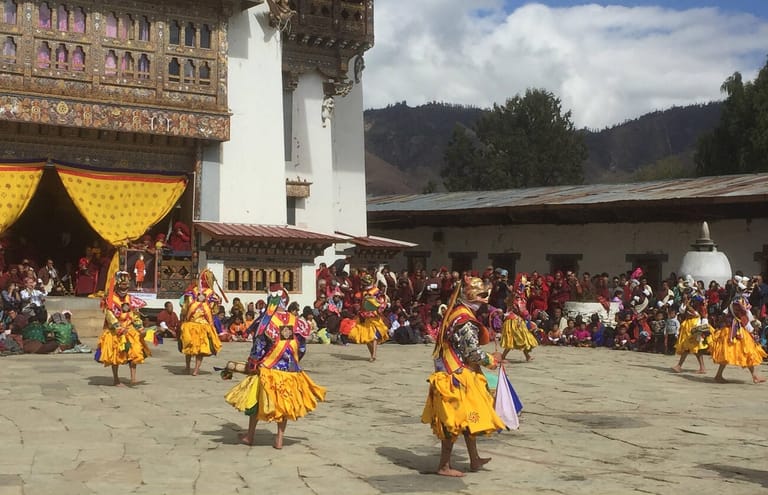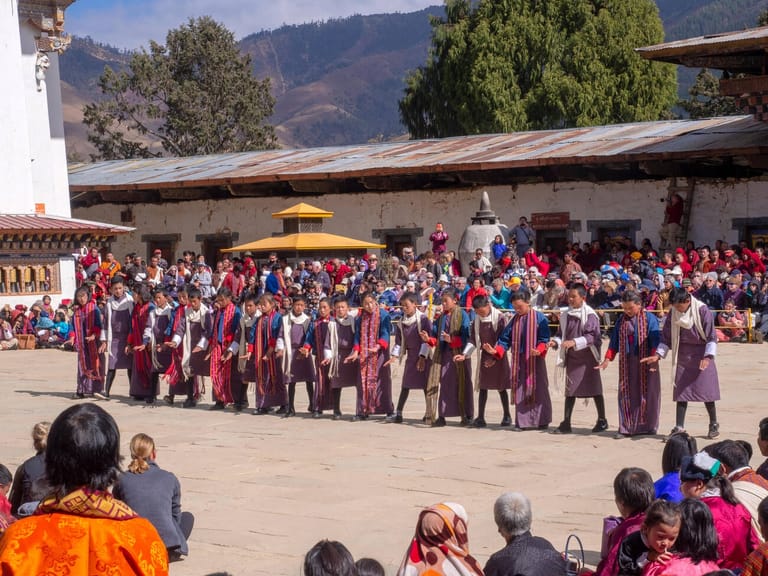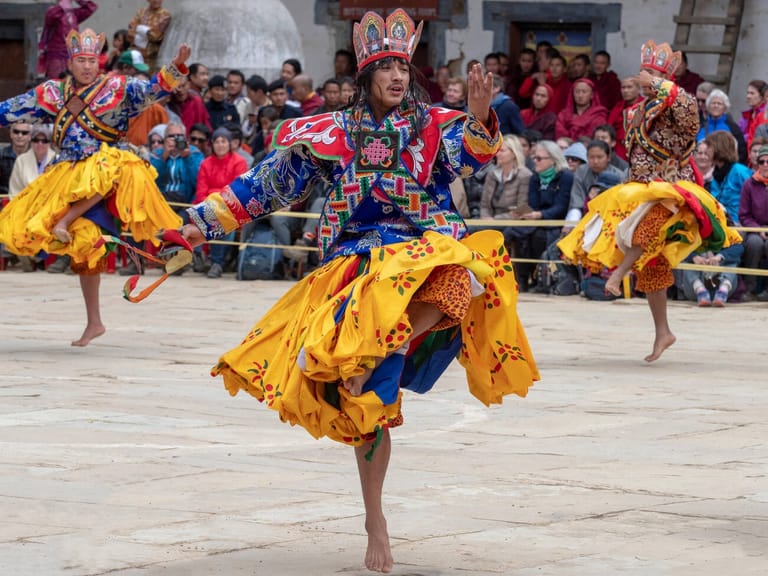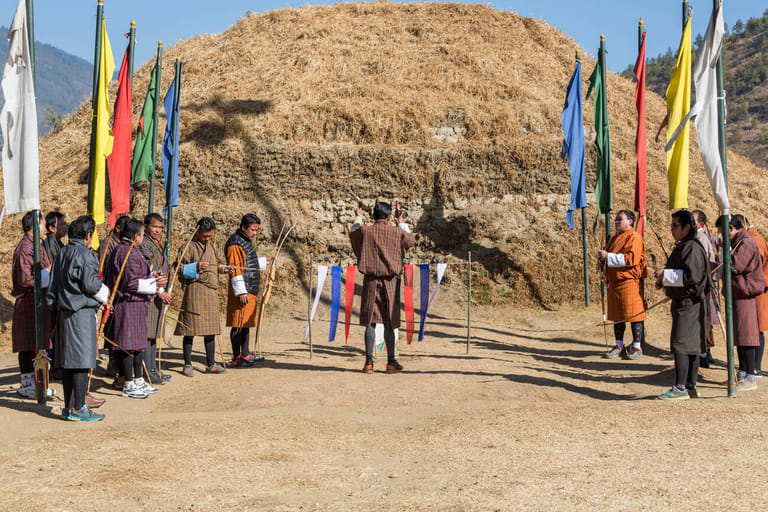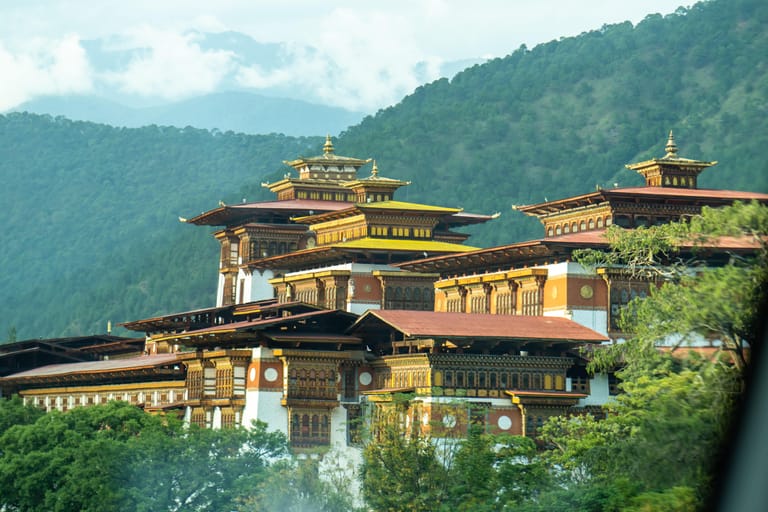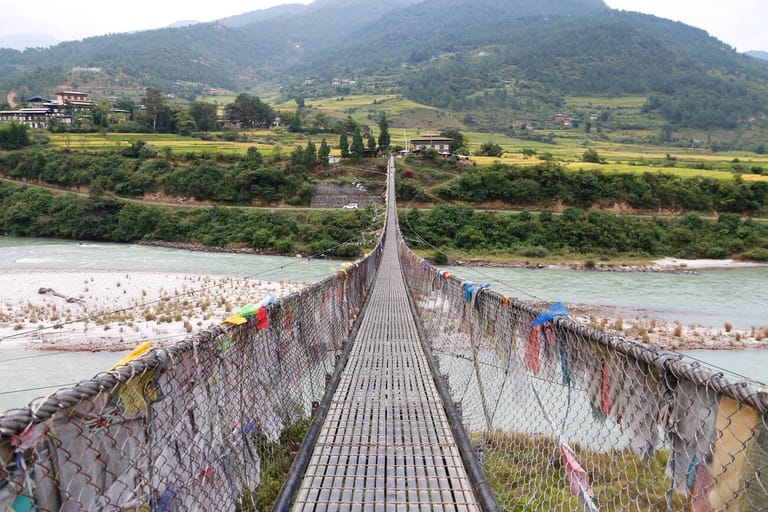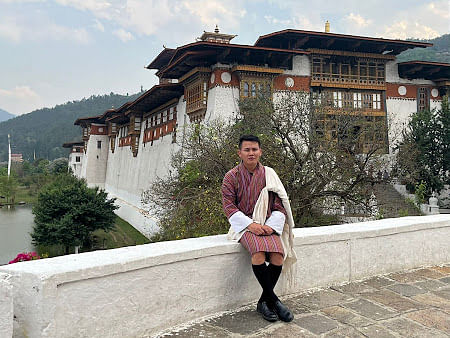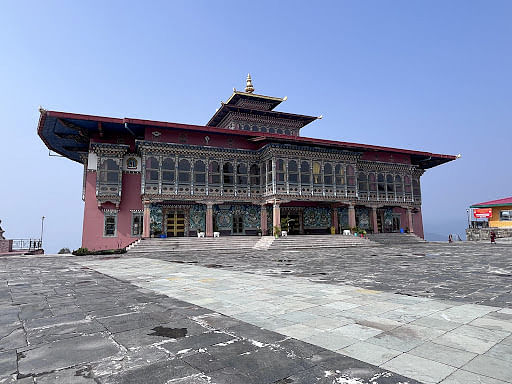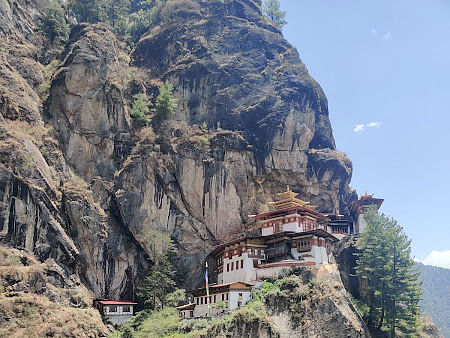The Black-Necked Crane Festival in Phobjikha Valley is all about welcoming back these big birds that spend winter in Bhutan. Happens every November when they fly down from Tibet. Locals treat it like a proper celebration because they think the cranes are sacred.
The kids do little shows about the cranes. Some dance around in costumes, others sing songs. Parents watch and clap. That's pretty much it - traditional music, some food stalls, everyone hanging out. Not fancy, but people seem to really enjoy it.
If you're heading to Bhutan, this is up there with things to do in Bhutan that aren't just temple-hopping. You get to see these rare birds walking around the fields while farmers work nearby. The valley's nice - quiet, green, mountains everywhere.
The cranes stick around till March. Our Bhutan Tour Packages take you there when the festival's on. You'll see the birds, probably eat some local dishes, and meet people who actually live there. Bring layers though - mountain weather's unpredictable and you'll be outside a lot.
What makes the Black-Necked Crane Festival special?
The Black-Necked Crane Festival is not only a cultural celebration but also an environmental movement. It is dedicated to creating awareness about the cranes and their fragile habitat. Visitors enjoy traditional dances, songs, and plays, but each performance carries a message of conservation.
It is also unique because the birds themselves are part of the story. Their arrival in Phobjikha Valley inspires both celebration and prayer. This mix of culture and nature makes the festival unlike any other in the world.
best selling bhutan tour packages
About the black-necked cranes in Bhutan
The black-necked cranes in Bhutan are tall, graceful birds with white bodies, black necks, and a patch of red on their heads. They are found in Tibet, China, and the Himalayan region, but Bhutan is one of their most important wintering grounds.
Every year, hundreds of them fly into the Phobjikha Valley from late October to March. Locals believe the cranes circle Gangtey Monastery three times before landing, as though offering prayers. This act has become legendary in Bhutanese culture.
Their presence has made Phobjikha a protected valley, and harming the birds is strictly forbidden.
What is the history of the Black-necked Crane Festival in Bhutan?
The History of Black-necked Crane Festival in Bhutan began in 1998. It was introduced by the Royal Society for the Protection of Nature (RSPN) along with the local community. The idea was simple but powerful: celebrate the cranes, spread awareness about their protection, and involve people in conservation through culture.
Since then, the event has been held every year on November 11, coinciding with the birth anniversary of the Fourth King, Jigme Singye Wangchuck. Over time, it has grown into a festival that is loved by both locals and international travellers.
Where does Bhutan's Black-Necked Crane Festival take place?
The Bhutan Black-Necked Crane Festival is held in the courtyard of Gangtey Monastery in the Phobjikha Valley. This location is special because the monastery overlooks the wetlands where the cranes live during winter.
The setting makes the festival even more meaningful. While people gather in the courtyard for cultural shows and dances, the cranes can often be seen in the valley below, adding to the sacred atmosphere.
Visitors to the Black Necked Crane Festival can enjoy a variety of performances throughout the day. Some highlights include:
- The Crane Dance – Schoolchildren wear crane costumes and gracefully imitate the birds’ movements.
- Mask Dances – Performed by monks, these are traditional Buddhist dances with deep spiritual meaning.
- Folk Songs and Plays – Children and villagers act out stories about nature, conservation, and local traditions.
- Community Songs and Dances – Villagers perform in colourful dress, celebrating their culture.
- Food and Craft Stalls – Local families sell homemade food, drinks, and handicrafts to visitors.
This mix of art, culture, and education makes the Black Necked Crane Festival both entertaining and meaningful.
What is the cultural significance of black-necked cranes in Bhutan?
The cultural significance of black-necked cranes in Bhutan is deeply spiritual. People believe that the birds are heavenly messengers. Their arrival signals good harvests, blessings, and prosperity.
The sight of cranes circling the monastery is seen as a form of prayer. In Bhutanese folklore, they symbolise happiness, peace, and longevity. Because of these beliefs, they are treated with great respect and care.
This cultural connection is one of the main reasons why the cranes continue to thrive in Bhutan compared to many other regions.
How does the festival help local communities?
The Bhutan's Black-Necked Crane Festival is not just about nature and culture; it also benefits the people of Phobjikha Valley. Tourism during the festival brings income through homestays, food stalls, and handicraft sales.
It also teaches children and villagers the importance of protecting the cranes and their wetlands. By linking conservation with cultural pride, the festival ensures that both people and wildlife benefit.
Why should travellers attend the Black-Necked Crane Festival in Bhutan?
The Black-Necked Crane Festival Bhutan is a must-see for anyone visiting the country in November. Travellers can:
- Watch one of Bhutan’s most unique cultural festivals.
- See the cranes up close in their natural winter home.
- Experience traditional mask dances, crane dances, and folk shows.
- Support sustainable tourism and local conservation efforts.
- Explore the beauty of Phobjikha Valley and Gangtey Monastery.
It is not just a festival, but an experience that connects visitors with Bhutan’s culture and its deep respect for nature.
The Black-Necked Crane Festival is more than a celebration. It is a reminder of how culture, spirituality, and conservation can work together. From the children’s crane dance to the graceful flight of the birds, every part of the festival carries meaning.
It shows how Bhutanese people honour nature while keeping their traditions alive. For anyone who wants to experience something truly unique, the Black-Necked Crane Festival Bhutan is a perfect blend of culture, nature, and spirituality.
In a world where traditions and wildlife often disappear, this festival stands as a living example of harmony between people and nature.




